27th Session of the OSS Strategic Orientation Committee, Tunis, January 28, 2025
Held on January 28, 2025 in Tunis, the 27th session of the Strategic Orientation…
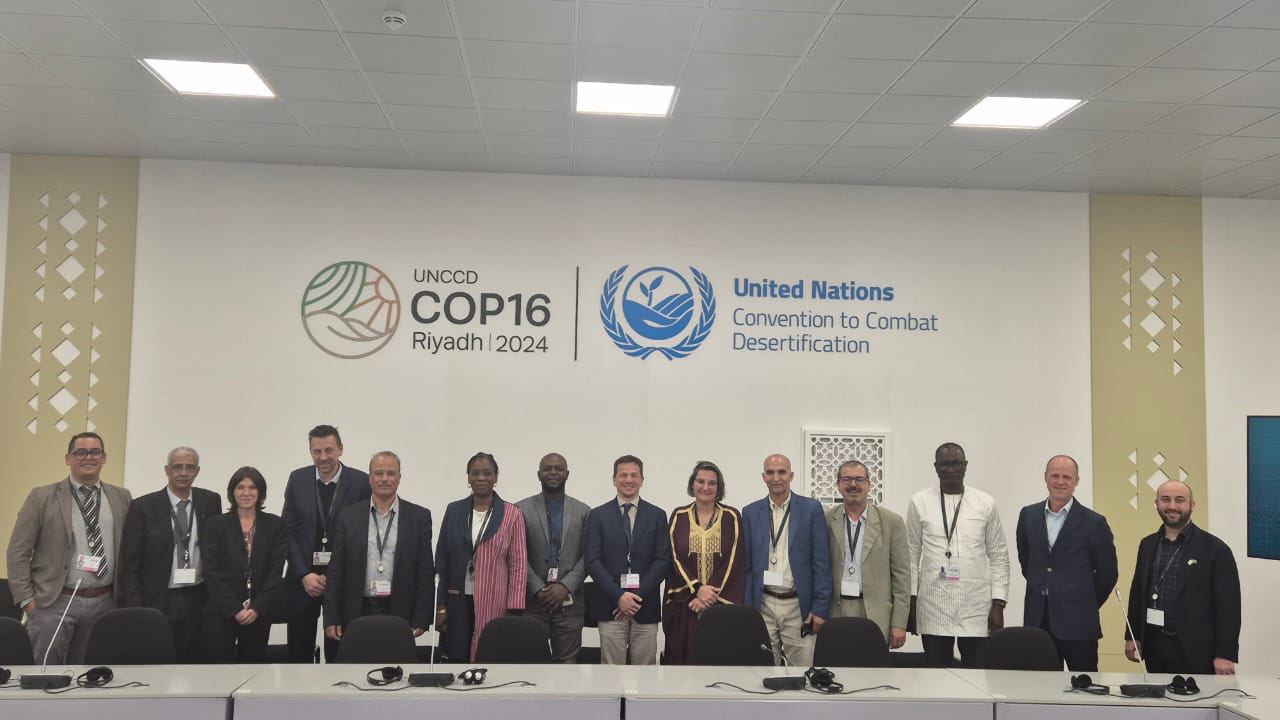
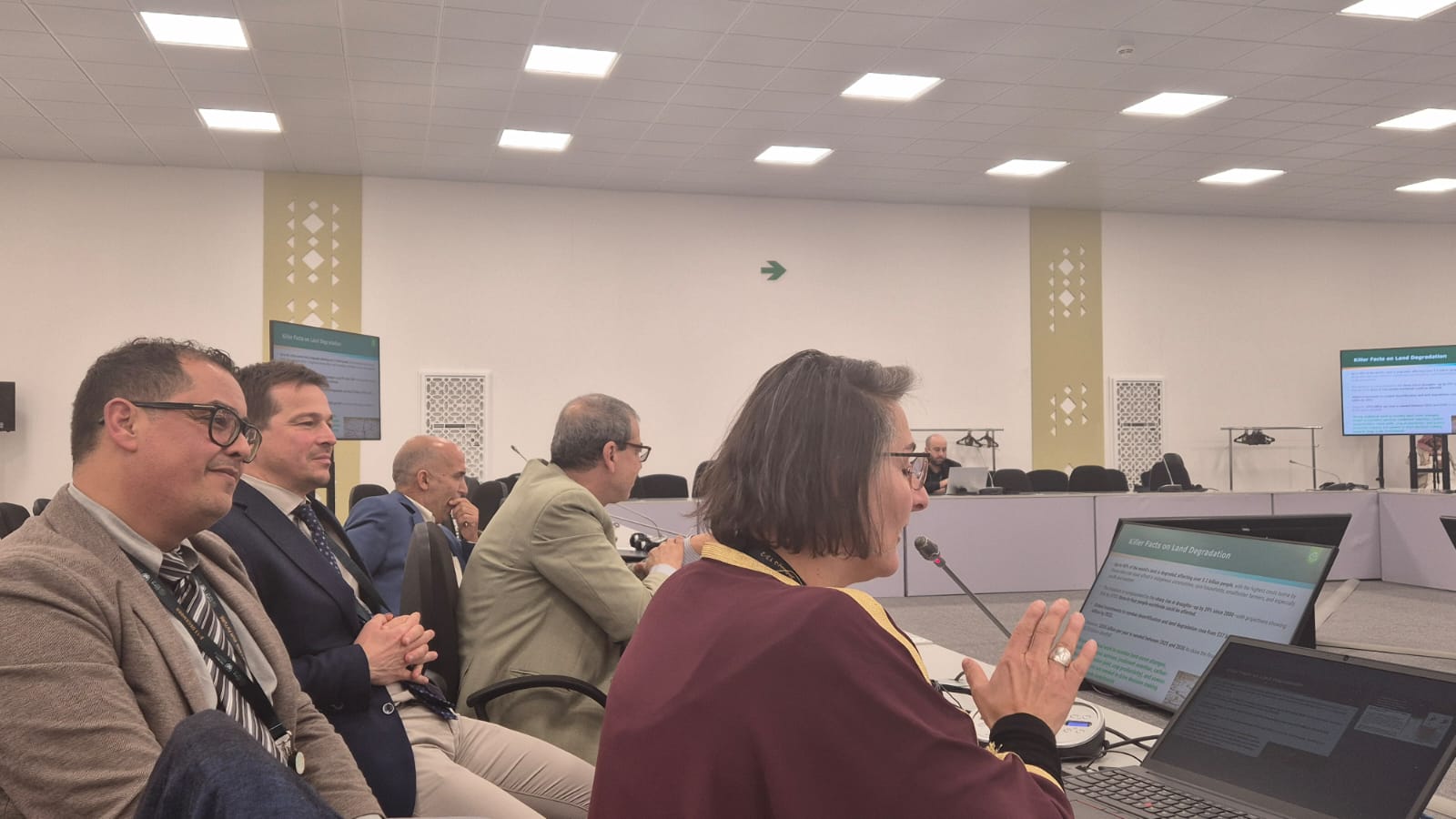
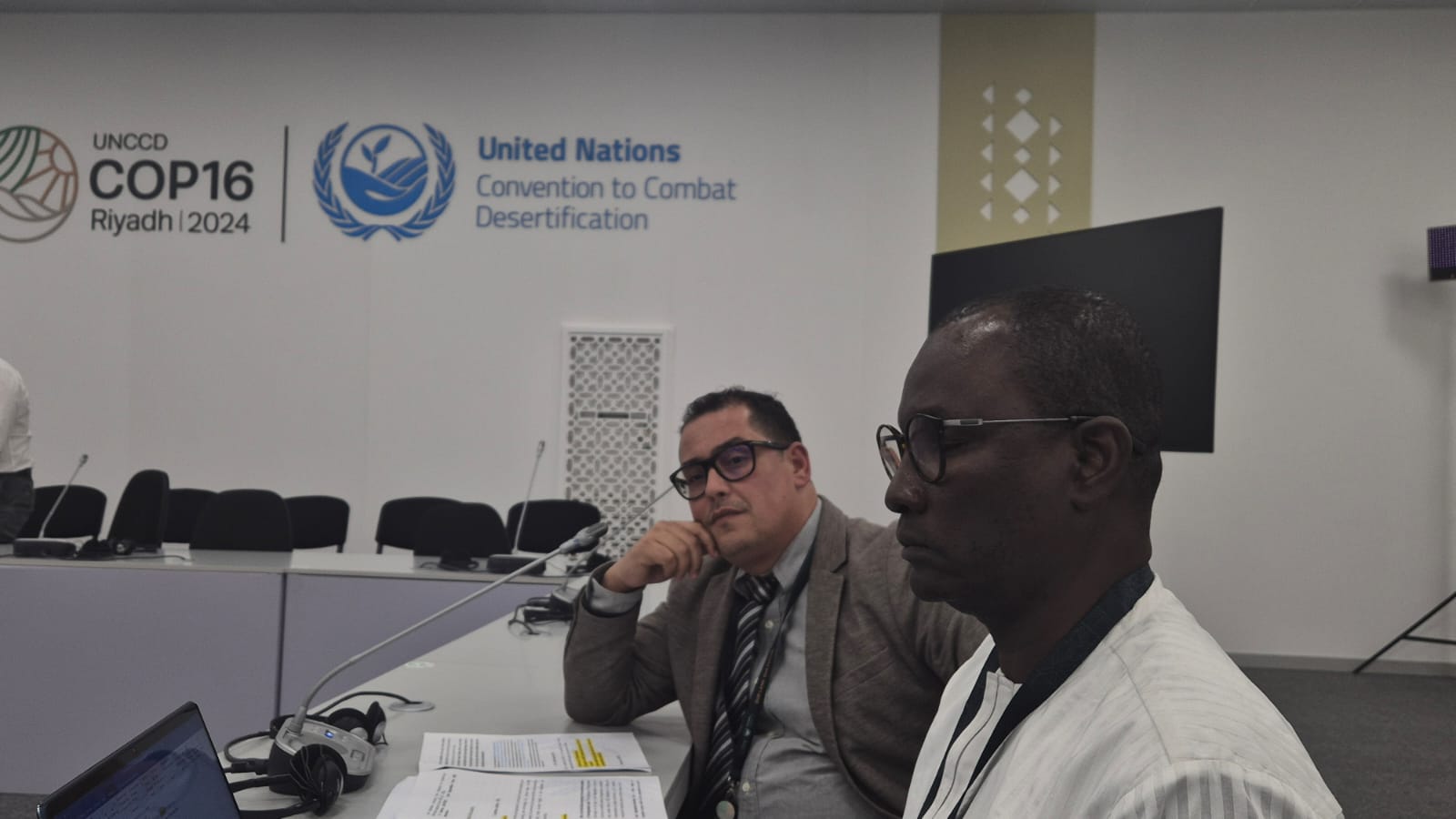
COP16 - OSS Side Event “Evidence-based analysis of SDG 15.3.1 in Africa: Leveraging innovative tools for land degradation monitoring and reporting”
On the sidelines of COP16 in Riyadh, the OSS organized on December 10, 2024, a side event entitled “Evidence-based analysis of SDG indicator 15.3.1 in Africa: Leveraging innovative tools for land degradation monitoring and reporting”.
This event made it possible to exchange on progress related to SDG indicator 15.3.1, share best practices for monitoring land degradation neutrality and highlight the contribution of innovative technologies.
Sandrine JAUFFRET (World Bank), Zoltan SZANTOI (European Space Agency), Hakim AISSAOUI (UNCCD Focal Point in Tunisia), Pr. Mohamed OUESSAR (Institute of Arid Regions in Tunisia) took part in the event as panelists, besides a diversified audience, including government representatives, UNCCD national focal points, scientists, policy makers and university representatives.
Participants analyzed progress on the indicator, with a focus on the specific challenges of hyper-arid and island areas, and shared case studies demonstrating the use of advanced technologies, such as remote sensing and artificial intelligence for monitoring land degradation and restoration.
Within the framework of the GMES&Africa program supported by the African Union, the OSS presented innovative tools such as the MISLAND-Africa geospatial platform, currently being finalized, which provides access, geoprocessing and visualization capabilities for indicators developed in a participatory approach.
Discussions helped promote the integration of evidence-based data into national and regional policies, build monitoring and reporting capacities on indicator 15.3.1, and mobilize funding to support efforts to achieve sustainable land management in Africa.
Exchanges also focused on the limitations of the global data used by default for national reports, particularly in the hyper-arid zones of North Africa and the Sahel, where spatial resolution does not allow for the identification of degradation hotspots or help value restoration efforts. Participants were able to discover the preliminary results of an operational method developed by the OSS and applied on a continental scale, combining Earth Observation data and local and national experts’ knowledge. These results, already published in the documentary book "African Land: The Degradation and the Absolute requirement of Sustainable Management", are also accessible via an interactive portal.
Held on January 28, 2025 in Tunis, the 27th session of the Strategic Orientation…
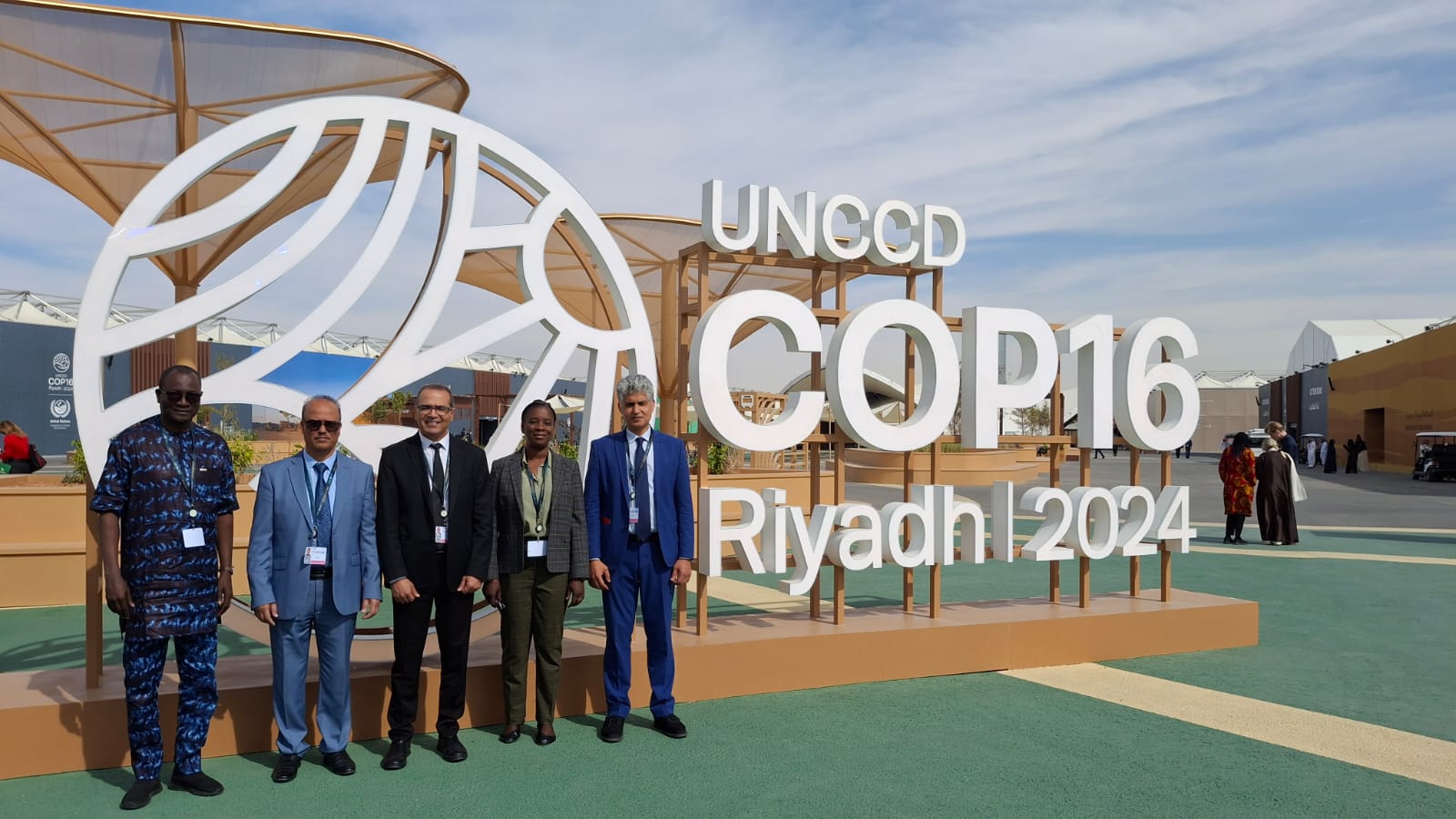
The participation of the Sahara and Sahel…
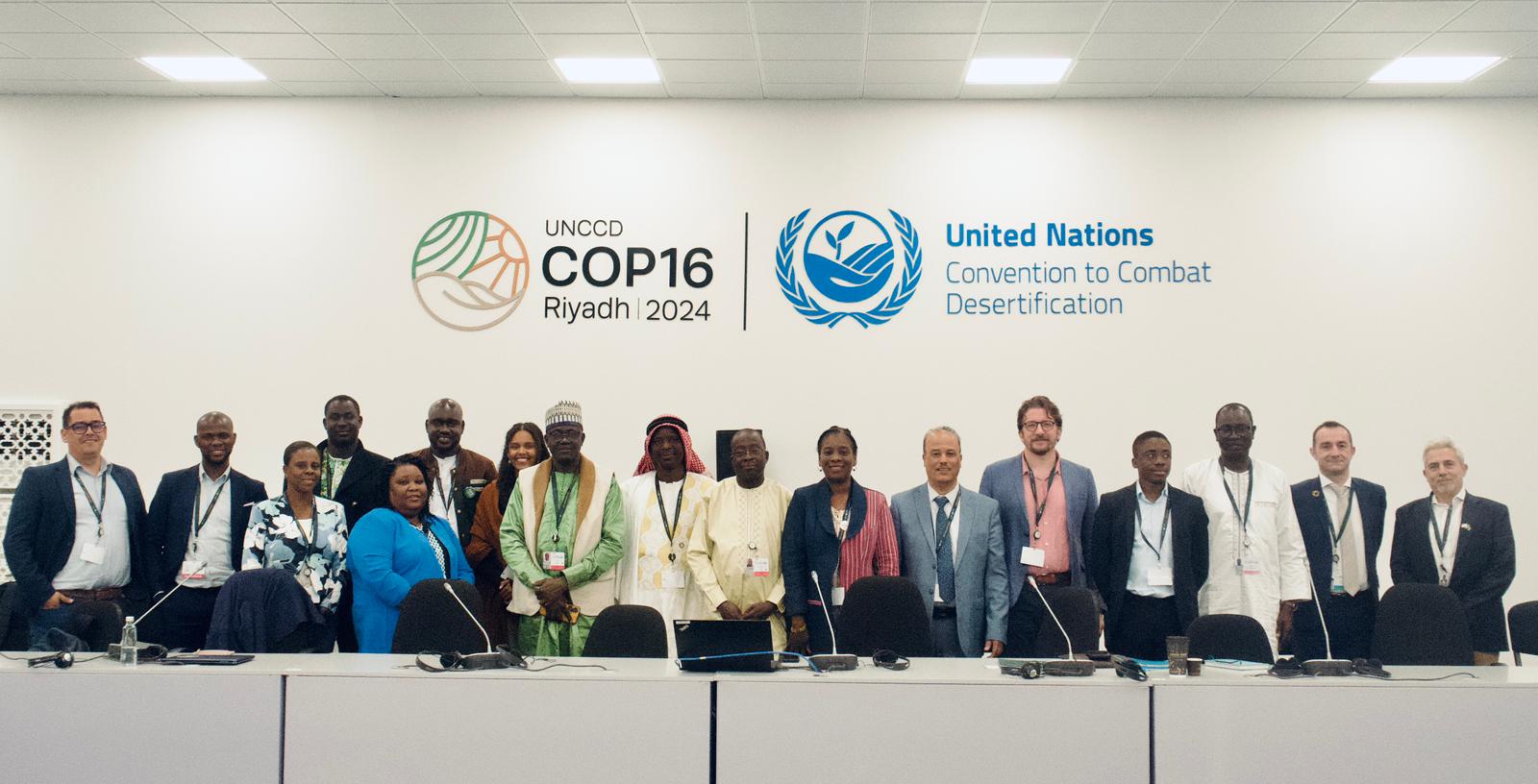
OSS Side Event at COP16: Strengthening Resilience in the Sahel through Multi-…